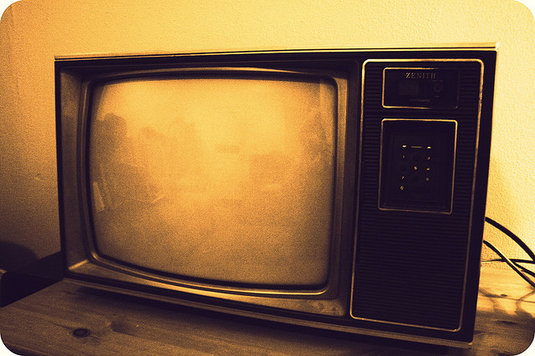
Thank God for commercials?
Sometimes, I read a study and go, “Hahaha yeah right.” Most often, I then proceed to do exactly what the study says I would do. This is one of those studies.
I mean, how would you react, if the title was, literally, “Enhancing the Televisionâ€Viewing Experience through Commercial Interruptions”?
A couple years ago, Leif Nelson of UC Berkeley and Tom Meyvis of NYU decided to measure how much our pleasure in watching a TV program diminished when it was interrupted by commercials.
So, they recruited 87 undergrads and paid them $10 to watch the episode “Louie’s Mother” from the classic late-’70s show Taxi. One group saw the episode without any commercials. Another group saw the show including commercials that accompanied it during a rebroadcast in 2005. The commercials included local advertisements (like for a law office and jewelry store) and promos for other shows on the station.
Wouldn’t you know it, the group that saw the commercials rated the show higher in terms of funniness and overall enjoyment. Nelson and Meyvis got similar results when asking undergrads to watch fight scenes and documentaries. They also tried out the experiment with older people and found the same thing.
Bottom line: We like programs better when they’re interrupted by commercials.
Adaptation: Good for chores, bad for pleasure
So what’s going on? As you’ve probably seen in other aspects of your life, the longer you’re in a certain situation, whether good or bad, the more you get used to it. Moving from a cold weather city to a warm weather one, for example, might make you happy in winter for a few months, but slowly you become used to the change, until it doesn’t bring you any pleasure anymore.
The same holds true for bad situations. Nelson and Meyvis ran a separate experiment where 140 undergrads sat at computers and listened to loud sound clips of vacuum cleaners running. One group only listened to five seconds of the vacuum. The second group listened to 40 seconds. And the third group listened to 40 seconds, followed by a 5-second break, followed by another five seconds of the vacuum. Nelson and Meyvis asked them to rate the last five seconds of their experience.
The group that listened to the noise for the full 40 seconds didn’t find the experience as annoying as those who had only heard it for five. Apparently, over the course of the time period, the vacuum cleaner noise seemed less irritating. But those who had the 5-second break (followed by another five seconds of vacuum) found the experience just as annoying as the group who only heard it for five total. In other words, the break renewed the sense of irritation.
Turning adaptation to your advantage
Think of the implications of their findings on your spending decisions. A shopping spree, for example, might bring you a lot of pleasure at the time it happens—maybe even way more than had you just bought one or two items—but the effect wears off over time, probably to the point that you want to go shopping again.
Nelson and Meyvis’s findings would suggest that you should really spread out those purchases over time. Maybe instead of one, blowout visit to Macy’s, you should come back several times over the course of the season to fill out your wardrobe. The individual experiences will probably make you less happy, but overall, you’ll spend more time being happy.
The opposite is also true. Who doesn’t find every tool available to them to interrupt a task that’s not fun—like, um, vacuum cleaning. You reward yourself with a little break from your chores when you complete one of them.
But that tendency might be misguided. Staying focused and churning it out would probably reduce your overall experience of boredom or annoyance or whatever the emotion is. Taking a break for that soda, or whatever, just gives your mind time to reset and after the break, approach the chores with a renewed sense of annoyance.
I’m not sure how their work jives with that happy feeling of anticipation we all know about. Putting off a great experience, or having a long time to look forward to it, delivers a lot of the same pleasure that the actual experience does. So, I wonder if taking 10, three-day weekends actually pays off better than a two-week trip that’s planned out and scheduled for a year.
But it seems like in the case of bad experiences, the trend just reinforces what we already know: Just put your head down and get it over with. You’ll be happy that you did.
{ 1 comment… read it below or add one }
That’s interesting. I employ a similar tactic to Starbucks.
I don’t buy one everyday, or even every month. I buy one when I really, really want one and crave it (which so far, has been once every 2-3 months), and the enjoyment I get out of that drink is far better than if I had it daily.